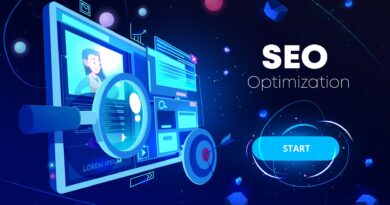Essential Components of an Effective Digital Marketing Strategy for Your Business
Essential Components of an Effective Digital Marketing Strategy for Your Business
In today’s digital age, a robust digital marketing strategy is essential for businesses of all sizes and industries. It’s the key to reaching and engaging with your target audience, building brand awareness, and ultimately driving growth and revenue. To create an effective digital marketing strategy, you need to consider several essential components that work together harmoniously. Here are the key elements to include:
1. Clear Business Objectives
Every successful digital marketing strategy starts with a clear understanding of your business objectives. What do you want to achieve through your digital efforts? Whether it’s increasing website traffic, generating leads, boosting sales, or enhancing brand awareness, your objectives should be specific, measurable, achievable, relevant, and time-bound (SMART).
2. Target Audience Research
Knowing your audience is critical. Conduct thorough research to create detailed buyer personas. Understand their demographics, pain points, interests, and online behavior. This knowledge will guide your content creation and help you tailor your messaging to resonate with your audience.
3. Content Marketing Strategy
Content is king in digital marketing. Develop a content marketing plan that aligns with your audience’s needs and preferences. This includes blog posts, videos, infographics, podcasts, and social media updates. Consistent, valuable content can establish your authority in your industry and attract and retain customers.
4. Search Engine Optimization (SEO)
SEO is the practice of optimizing your website to rank higher in search engine results pages (SERPs). It involves keyword research, on-page optimization, link building, and technical SEO. A well-optimized website is more likely to be discovered by potential customers.
5. Social Media Strategy
Choose the social media platforms most relevant to your target audience and create a social media strategy. Consistent posting, engagement with followers, and paid advertising can help you grow your social media presence and drive traffic to your website.
6. Email Marketing
Email marketing remains a powerful tool for building and nurturing customer relationships. Create personalized, engaging email campaigns that provide value to your subscribers. Segment your email list to send tailored messages to different groups of customers.
7. Pay-Per-Click (PPC) Advertising
PPC advertising, such as Google Ads and social media ads, allows you to reach your target audience through paid placements. These campaigns can be highly targeted and offer measurable results, making them an essential part of your digital marketing mix.
8. Analytics and Data Analysis
Regularly monitor and analyze your digital marketing efforts using tools like Google Analytics. Track key performance indicators (KPIs) such as website traffic, conversion rates, and return on investment (ROI). Use these insights to refine your strategy and make data-driven decisions.
9. Conversion Optimization
It’s not enough to drive traffic to your website; you must also convert visitors into customers or leads. Implement conversion rate optimization (CRO) techniques, such as A/B testing and user experience improvements, to maximize the impact of your digital efforts.
10. Mobile Optimization
With the increasing use of mobile devices, your digital marketing strategy must consider mobile users. Ensure your website is responsive and provides an excellent user experience on smartphones and tablets.
11. Online Reputation Management
Your online reputation can significantly impact your business. Monitor online reviews and respond to them promptly, whether they’re positive or negative. Building a positive online reputation can enhance trust and credibility.
12. Budget Allocation
Allocate your digital marketing budget strategically. Consider which channels and tactics yield the best results for your business and adjust your budget accordingly.
13. Competitor Analysis
Study your competitors to identify strengths, weaknesses, and opportunities. Understanding what works for them and what doesn’t can inform your own strategy.
14. Marketing Automation
Implement marketing automation tools to streamline repetitive tasks, such as email marketing and lead nurturing. Automation can save time and improve efficiency.
15. Adaptation and Flexibility
Digital marketing is dynamic, and trends change quickly. Be prepared to adapt your strategy based on emerging technologies and shifting consumer behaviors.
16. Regular Evaluation and Reporting
Consistently evaluate the performance of your digital marketing campaigns. Create regular reports that highlight successes and areas for improvement. Use these insights to refine your strategy and achieve better results over time.
Incorporating these essential components into your digital marketing strategy will help you create a comprehensive and effective plan to grow your business online. Keep in mind that digital marketing is an ongoing process, and staying updated with industry trends and consumer preferences is key to long-term success.




